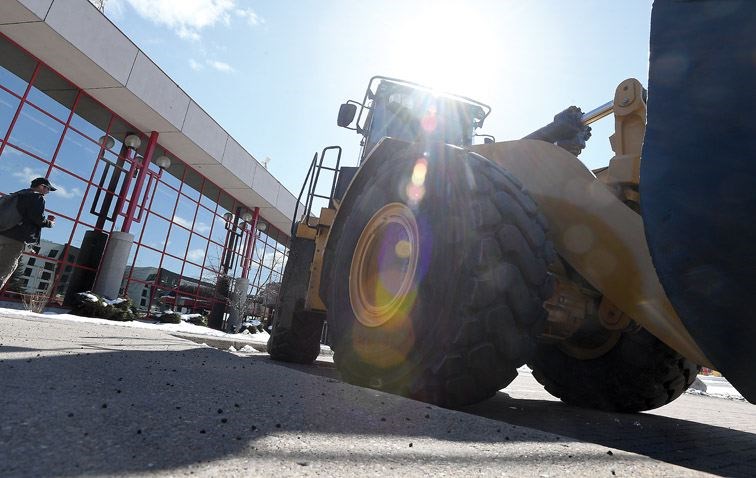The lumber industry hasn't faced issues so big or so complex in years. It's a prime time in international trade history to have the Council of Forest Industries (COFI) hold their annual convention in Prince George where such topics as American border tariffs, Asian market potential, softwood timber supply shortages, new pest threats to the forest and the baby boomer turnover in the forestry labour force are all on the front burner at the same time.
More than 500 industry and government leaders are in the city throughout the week to explore these issues in a concentrated fashion. According to COFI, this is the largest annual gathering of the forest sector in Western Canada.
"Prince George is one of 140 communities across the province that depend on the forest sector through mills, manufacturing facilities, forestry and logging operations," said COFI president Susan Yurkovich. "The forest industry is a key economic driver in the province, generating one out of every 17 jobs, making it one of B.C.'s largest employers at more than 140,000 total jobs that generate $8.6 billion in wages to workers."
COFI routinely cycles their annual convention around a few of the B.C. cities that have large stakes in the ever-diversifying forest economy. Last year that was Vancouver. This year it is back in Prince George.
Some of the keynote figures on the agenda this week are Premier John Horgan leading the provincial government delegation, while the federal contingent will be led by Marc Garneau, Canada's Minister of Transport and chair of the cabinet committee on Canada-United States Relations.
Another guest is Bruce Anderson, chair of Abacus Data. He will provide an overview of current research of British Columbians' perception of forestry in B.C.
Dean Prelazzi, business development lead of Canada's Digital Technology Supercluster, will discuss Canada's digital supercluster and why it matters for forestry.
As the executive vice-president and chief policy officer of the Business Council of B.C., Jock Finlayson will share his perspective of the shifting economic landscape in Canada and British Columbia.
Beth MacNeil, the newly appointed assistant deputy minister and the head of the Natural Resources Canada's Canadian Forest Service, will provide her fresh insights.
B.C.'s chief forester, Diane Nicholls, will provide a presentation on sustainability in the forest sector and an update with respect to the timber harvesting land base.
Duncan Davies, president and CEO of Interfor and the co-chair of the B.C. Lumber Trade Council (also a member of the executive committee of the Softwood Lumber Board), will provide an update on efforts in America to promote the benefits and use of softwood lumber.
There will also be a panel of provincial government ministers and ministerial officials, a panel of industrial CEOs, and a panel of key international trade experts.
"The annual convention provides an opportunity to gather together to discuss issues critically important to the forest industry's success," said Yurkovich.
"This year, we are especially pleased to be welcoming new members from the coastal forest sector to the COFI family. Together, we are working to provide a strong voice for the forest industry, and the communities, workers and families that depend on us across our province."
The first official event takes place this morning, with a full day of discussions and events carrying through Friday. The convention takes place at the Prince George Conference and Civic Centre.



